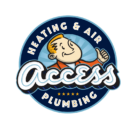Did you know that the air we breathe can have a huge impact on our health? According to the World Health Organization, air quality is “a major environmental risk to human health.” In this article, we will discuss what air quality is, and why it matters.
We will also look at some of the health risks associated with poor air quality. By the end of this article, you will have a better understanding of why air quality is so important.
What is Air Quality?
Air quality is a measure of the number of pollutants in the air. These pollutants can come from many different sources, including factories, power plants, cars and trucks, burning wood or trash, and even natural sources like volcanoes.
Many different types of pollutants can be found in the air, but the most common are particulate matter (PM), ozone (O₃), nitrogen dioxide (NO₂), and sulfur dioxide (SO₂).
Particulate matter is made up of tiny particles that can be inhaled deep into our lungs. Ozone is a gas that forms when other pollutants react with each other in the presence of sunlight. Nitrogen dioxide is produced by burning fossil fuels, and sulfur dioxide is produced by burning coal.
Why Does Air Quality Matter?
Air quality matters because these pollutants can have a serious impact on our health. For example, particulate matter has been linked to respiratory problems like asthma and bronchitis. Ozone can cause coughing, throat irritation, and difficulty breathing.
Nitrogen dioxide can aggravate respiratory conditions like asthma, and sulfur dioxide can cause wheezing and shortness of breath.
These pollutants can also affect other parts of our bodies, including our hearts and our brain. Studies have shown that exposure to air pollution can increase the risk of heart disease, stroke, and cognitive decline. In children, poor air quality has been linked to lower IQ scores and impaired lung development.
Signs Your Home Has Bad Air Quality
There are a few signs that you can look for to see if your home has poor air quality. For example, do you or anyone in your family suffer from frequent headaches, dizziness, or nausea? Do you have difficulty breathing, or notice that your eyes or throat become irritated when you are inside your home?
If you answered yes to any of these questions, your home may have poor air quality. Another sign of bad air quality is the presence of dust, mold, or other pollutants in the air. These particles can trigger allergies and respiratory problems.
If you suspect that your home has poor air quality, there are a few things you can do to improve the situation. First, try to identify the source of the pollution. If you live in a city, there may be factories or power plants nearby that are contributing to the problem.
If you have a fireplace, make sure that it is properly ventilated to avoid releasing pollutants into the air. You can also buy an air purifier to help remove pollutants from the air in your home. By taking these steps, you can improve your family’s health and well-being.
Quality HVAC Services Can Make a Difference
If you are concerned about the air quality in your home, it is important to have a professional inspect your HVAC system. Your HVAC system plays a crucial role in regulating the air quality in your home.
A qualified technician will be able to identify any problems with your system and make necessary repairs. They can also offer advice on how to improve the air quality in your home. By investing in quality HVAC services, you can breathe easier knowing that your family is protected from harmful pollutants.
Schedule Our HVAC Service Today
If you would like to learn more about air quality or schedule our HVAC service, please contact us today. We would be happy to answer any of your questions and help you create a healthy indoor environment for your family.
